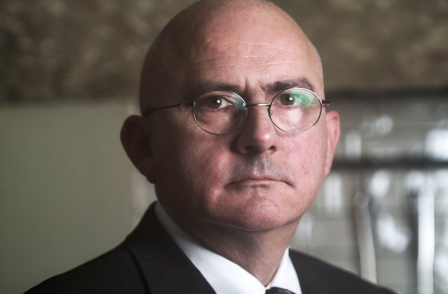
In January 2011, The Times published an explosive story revealing the sexual abuse of girls in the north of England by gangs made up of mostly Muslim men.
The story so outraged and appalled the British public that the Government ordered a national inquiry within days. At that point, five months after beginning work on the story, Andrew Norfolk thought, “job done”.
He was wrong. Only now, with the child protection system “transformed”, is Norfolk starting to feel like his investigation is nearing its end and is starting to think about other work.
“I certainly can’t spend the rest of my career writing about this story,” he says. “As you can probably imagine, there’s not much light relief with a story of that nature.
“And because you end up getting to know a lot of families in that situation, and you get to know them really well, it can take over too much of your life.”
In all, Norfolk has spent the last 28 months working on the story full time. It started for Norfolk shortly after he was made The Times’s North East correspondent in 2003. Then, he had covered the concerns of Keighly MP Ann Cryer, the first mainstream figure to speak out about gangs of men meeting young girls outside secondary schools.
He didn’t follow it up and, with the far-Right “leaping on the story”, neither did anyone else. Norfolk continued to hear and read about cases where men with generally South Asian Muslim names were meeting young girls in public spaces. No one seemed to have made the connection and Norfolk became “increasingly uneasy” that he had not followed up on Cryer’s claims.
The “final trigger” for Norfolk came in August 2010. While driving up to Scotland for a weekend away, he was listening to a Radio 5 Live report on nine men who had been convicted of offences relating to a 14-year-old girl at Manchester Crown Court. “I’m sitting in my car. And… not knowing anything about that case, I thought, I bet there is something I know about the defendants right now. So when I got back to Yorkshire I checked, and sure enough there were nine, as it turned out, Pakistani people.”
He then went to The Times and insisted this was a story that needed to be covered. After months of thorough research he discovered a clear pattern.
“I then started trying to speak to people about it. Police sources, local authorities, charities that work with specialist projects and stuff. And nobody would talk about it. Really nobody would talk about it. Nobody would even talk off the record about it.”
“And the more you get doors slammed in your face, the more suspicious I became. In any other kind of case, if you have a crime pattern, that’s useful in terms of trying to understand why it is happening.”
When the story went out Norfolk’s then editor James Harding called him down to London for a meeting. “And he said: ‘This is not the end – this is just the start. I want you to work on this full-time.
“‘We are going to carry on working on this story and running stories about this until we are satisfied that every single body in the country that has a responsibility for child protection has systems in place that we feel are adequate to, A, protect children, and, B, to detect and prosecute offenders.’ So then this odyssey started.”
Norfolk says he wasn’t unwilling to take up the story, but emphasises that it was “entirely driven” but Harding, who left The Times in December and is now head of news for the BBC.
Since then, Norfolk has spent just two weeks working on other stories – once in August 2011 when he was pulled out of court because the paper had run out of staff to cover the riots and then a couple of times this year.
He describes The Times’s commitment to this story as “incredible”, particularly because of its controversial nature. Because the stories largely concerned Muslim men, a number of “accusations” were thrown at the paper – especially early on in the investigation. Norfolk admits this is something he could not help but be “acutely aware of” throughout his investigation. He and The Times did not want the story to be exploited by the far-Right.
And, judging by his personal experiences, they succeeded.
“The only hatemail or abuse has come ironically from supporters of far-Right groups, which is quite bizarre. We’d made a point of trying distinguish between what we would say is the truth and the distortions.”
Norfolk says any concerns he had about his motivations being questioned have been assuaged by two high-profile prizes he was awarded this year.
He says his Paul Foot Award and shared Orwell Prize for Journalism felt like “real vindication”.
“It felt like, if they’re saying it’s okay, as in you’re doing it for the right reasons, it really did feel almost like the argument was over. As in, you can’t really challenge the motivation now. ”
Email pged@pressgazette.co.uk to point out mistakes, provide story tips or send in a letter for publication on our "Letters Page" blog
